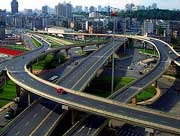


U.S. President-elect Donald Trump on Thursday announced Peter Navarro to lead a new White House office called the National Trade Council (NTC) responsible for overseeing U.S. trade and industrial policy. Trump’s latest move is another troubling sign that America will take a more assertive foreign policy approach in the face of increasing U.S. decline and impotence relative to China and other emerging powers reshaping the international system.
The Trump Transition Team describes Navarro as a visionary economist who will develop trade policies that shrink the U.S. trade deficit, expand U.S. growth, and help stop the exodus of jobs from U.S. shores. But Navarro is also a strident China critic.
Navarro views China as the greatest long-term threat to the West. His view dovetails with others in Trump’s inner circle, such as Trump advisor Michael Pillsbury. Pillsbury authored the book, “The Hundred-Year Marathon,” an alarmist work that argues Beijing is secretly plotting to take over the world. Fu Ying, Foreign Affairs Committee Chairperson of the National People’s Congress, has described Pillsbury’s book as “nonsense,” according to an article by Foreign Policy.
In his book The Coming China Wars, Navarro argues that the U.S. needs to “aggressively and comprehensively address the China problem.”
In a 2012 film based on his book Death by China, Navarro described the China-U.S. trade relationship as one of the most urgent problems facing America. He blamed China for the loss of 57,000 American factories and 25 million American jobs. Against a fear-provoking backdrop image that shows a large “Made in China” knife being driven into an American flag, he says, “Help defend America, and protect your family. Don’t buy made in China.” The film has been criticized for hyping up the “China threat.” Neil Genzlinger of The New York Times, for example, described the film as “unabashedly one-sided.”
In 2015, Navarro wrote an article for The National Interest on China’s rise. He blamed America’s singular focus on the war on terrorism for distracting the West from the real issue: “A revisionist Beijing [that] will quietly continue its expansionism in the East.” He views China’s rise as a threat to American power, and believes that America should be free to roam the Asia-Pacific region. “The Asia-Pacific is…home to 50% of the world’s population and likely more than 70% of future economic growth – and therefore a part of the world where America’s economic and strategic future ultimately lays,” he wrote. Future leaders should “never lose sight of this essential truth.”
China has been watching Trump closely. His position on China has been all over the place and remains uncertain, but the trend is disturbing. Trump continues to surround himself with China critics who view China as a threat, and their arguments are often devoid of facts. While the China-U.S. relationship is complex, there are many benefits. It is a mutually beneficial relationship. The opposite of that of course means that it could be mutually destructive too.

 Who Will Fit The Chinese Roles In Game Of Thrones?
Who Will Fit The Chinese Roles In Game Of Thrones? China's Hubei Shennongjia added to World Heritage List
China's Hubei Shennongjia added to World Heritage List Cute Dog At Fruit Stand Becomes Latest Internet Sensation
Cute Dog At Fruit Stand Becomes Latest Internet Sensation Top 10 livable Chinese cities
Top 10 livable Chinese cities The last primitive tribe in China
The last primitive tribe in China China's first intelligent security robot debuts in Chongqing
China's first intelligent security robot debuts in Chongqing A Total of 3,552 Subscribers Vanish In Two Days; YouTube Closes All Doors to Users’ Inquiries
A Total of 3,552 Subscribers Vanish In Two Days; YouTube Closes All Doors to Users’ Inquiries Out of this world! Futuristic UFO-shaped yacht has its own garden and a stunning underwater viewing deck
Out of this world! Futuristic UFO-shaped yacht has its own garden and a stunning underwater viewing deck An old tea house in Chengdu
An old tea house in Chengdu Furious Customer Crushes All the Buns from Vendor Just Because He Was Given the Wrong Flavor
Furious Customer Crushes All the Buns from Vendor Just Because He Was Given the Wrong Flavor